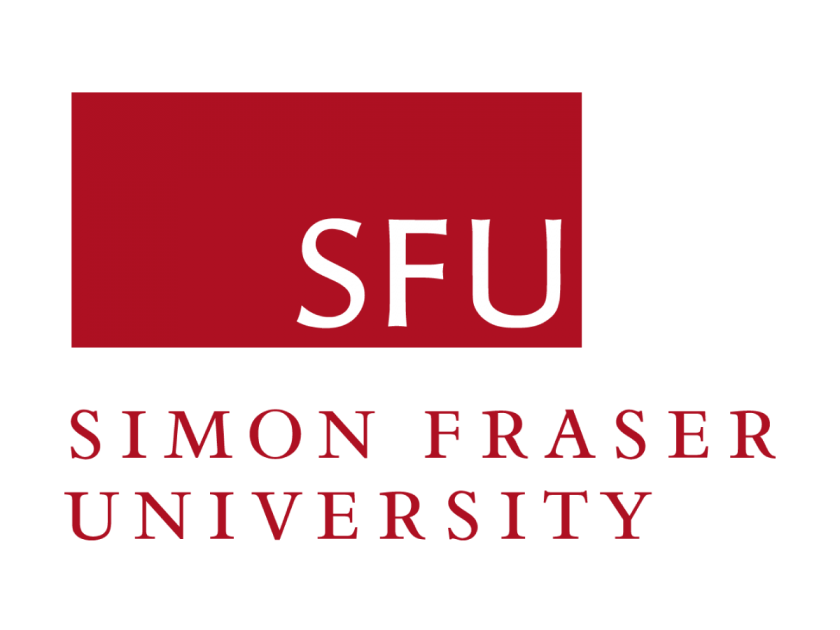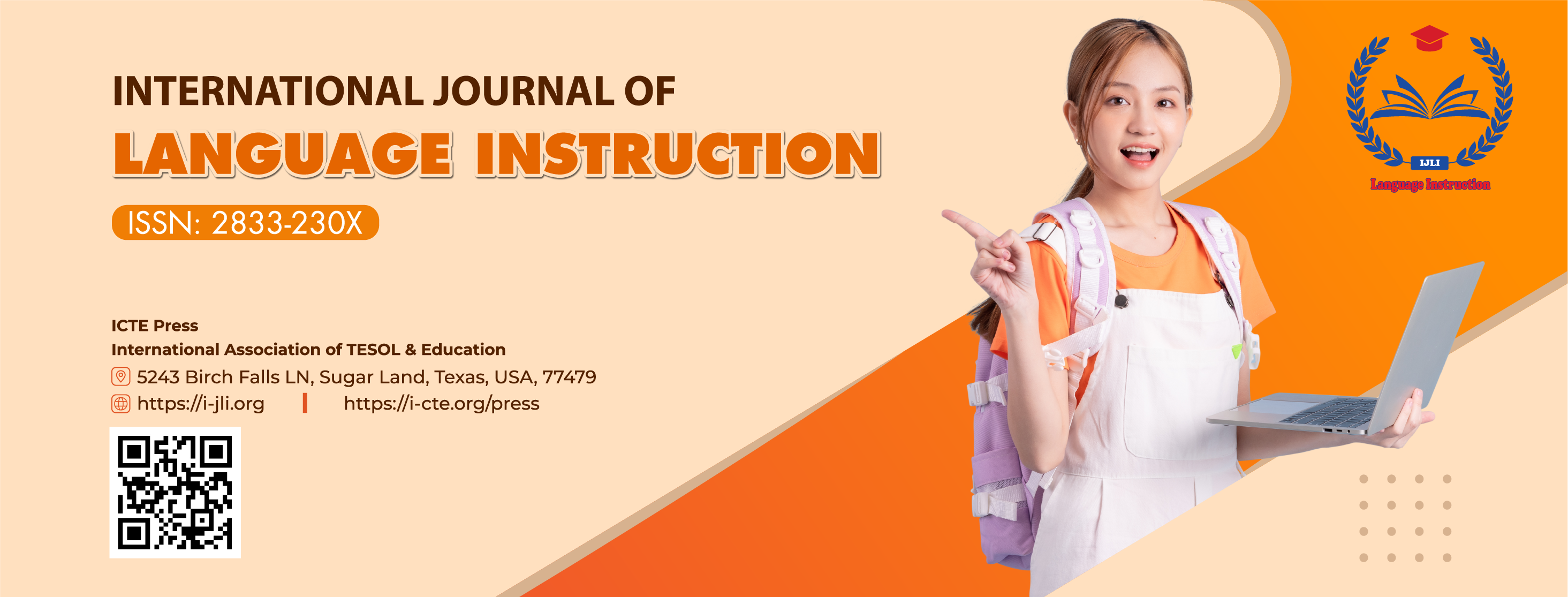Improving First-Year English-Majored Students’ Speaking Skills through Using Digital Storytelling
DOI:
https://doi.org/10.54855/ijli.24323Keywords:
digital storytelling, English speaking skill, English speaking confidence, motivationAbstract
This study aims to investigate the effectiveness of digital storytelling on Vietnamese first-year English-majored students' English-speaking learning at a university in Vietnam. In this study, the students were asked to create English-dubbed animated stories with different topics relating to their speaking lessons by using the Movie Adventure application. Methods for data collection were speaking pre-and post-tests, questionnaires, and interviews. The findings revealed that using digital storytelling as a pedagogical tool for practicing English speaking benefited students' speaking ability. The findings also showed that engaging in the content of stories not only encouraged students' motivation but instilled their confidence to speak in English. The results of the given questionnaires and interviews showed that students responded positively to the implementation of digital storytelling, which facilitated learning by allowing learners to interact and collaborate in English. From the results gained, it was concluded that digital storytelling can be used to create a dynamic speaking learning environment that helps students participate actively in their English-speaking lessons during their learning time.References
Al-Wossabi, S. (2016). Speaking in the target language: Issues and considerations. Journal ofLanguage Teaching and Research, 7(5), 886-893. doi: http://dx.doi.org/10.17507/jltr.0705.08
Arroba, J., & Acosta, H. (2021). Authentic digital storytelling as alternative teaching strategy to develop speaking skills in EFL classes. LEARN Journal: Language Education and Acquisition Research Network, 14(1), 317-343.
Badawi, M., El Gabas, N., & Mohammad, N. (2022). The effect of using a strategy based on digital storytelling on developing primary school pupil’s English speaking skills. Journal of Research in Curriculum, Instruction and Educational Technology, 8(1), 121-147.
Creswell. J.W. and Creswell, J.D. (2017). Research Design: Qualitative, Quantitative, and Mixed Methods Approaches (4th Edition). Sage, Newbury Park.
Druckman, D., & Bjork, R. A. (1994). Learning, remembering, believing: enhancing human performance. National Academy Press.
Fauzan, U. (2014). The use of improvisations technoique to improve the speaking ability of EFL students. Dinamika Ilmu, 14(2), 265-288. doi: 10.21093/di.v14i2.17
Gardner, R.C. (2007). Motivation and second language acquisition. Porta Linguarum, 8, 9-20.
Ghenghesh, P. (2010). The Motivation of Learners of Arabic: Does it Decrease with Age? Journal of Language Teaching and Research, 1(3), 235-249
Griffee, D. T. (1997). Validating a questionnaire on confidence in speaking English as a foreign language. JALT Journal, 19(2), 177-197.
Gurler, I. (2015). Correlation betweenself-confidence and speaking skill of Englishlanguage teaching and English language andliterature preparatory students. Curr Res SocSci, 1(2), 14-19
Harmer, J. (2007). How to teach English (2nd ed.). Harlow: Pearson, Longman Idayani, A. (2019). The effectiveness of digital storytelling on students’ speaking ability. Lectura : Jurnal Pendidikan, 10(1), 33-46. https://doi.org/10.31849/lectura.v10i1.2409
Le, H. M., & Phan, N. T. V. (2023). Vietnamese EFL students’ perceptions of difficulties in achieving English oral communicative competence. International Journal of Scientific Research and Management, 11(5), 2769-2782. https://10.18535/ijsrm/v11i05.e102
Lei, S. (2010). Intrinsic and extrinsic motivation: Evaluating benefits and drawbacks from college instructors’ perspectives. Journal of Instructional Psychology, 37, 153-160.
Lwin, M.S. (2016). It’s story time!: Exploring potential of multimodality in oral storytelling to support children’s vocabulary learning. Literacy, 50(3), 72-82. doi:10.1111/lit.12075
Malita, L., & Martin, C. (2010). Digital storytelling as web passport to success in the 21st century. Procedia Social and Behavioral Sciences, 2(2010), 3060-3064. https://10.1916/j.sbspro.2010.03.465
Mirza, H., S. (2020). Improving university students’English proficiency with digital storytelling. International Online Journal of Education andTeaching (IOJET), 7(1). 84-94. http://iojet.org/index.php/IOJET/article/view/668
Murad, T., Assadi, J., & Badarni, H. (2023). Digital storytelling and EFL speaking skill improvement. Journal of Language Teaching and Research, 14(4), 1189-1198. doi:https://doi.org/10.17507/jltr.1405.06
Nair, V., & Yunus, M. M. (2021). A systematic review of digital storytelling in improving speaking skills. Sustainability, 13(7), 9829.doi: https://doi.org/10.3390/su13179829
Nair, V., & Yunus, M. (2022). Using digital storytelling to improve pupil’s speaking skills in the age of COVID-19. Sustainability, 14(15), 9215. doi: https://doi.org/10.3390/su14159215
Nampaktai, P., & Suksiripakonchai, W. (2018). The use of digital storytelling in fostering English speaking ability of Thai secondary students. International Humanities, Social Sciences and Arts, 11(4), 1192-1206. Retrieved from https://he02.tcithaijo.org/index.php/Veridian-E-Journal/article/view/167477
Nguyen, T. T. H., Phan, T. M. U., & Ho, T. L. U. (2023). Some difficulties in learning speaking of English majored freshmen at Tay Do University in Vietnam. International Journal of Social Science and Education Research Studies, 3(3), 430-436. https://10.55677/ijssers/V03I3Y2023-11
Nguyen, T.T., & Tong, T.T.N. (2024). Investigation into difficulties in public speaking among English-majored students at University of Phan Thiet. International Journal of Language Instruction, 3(1), 17-30. doi: https://doi.org/10.54855/ijli.24312
Rajab, M. F., Alzeebaree, Y., & Zebari, HAI. (2020). Effectiveness of English language in a globalized world: EFL teachers of Duhok University. Asian EFL Journal Research Articles, 27(2.3), 38-47.
Razmi, M., Pourali, S., & Nozad, S. (2014). Digital storytelling in EFL classrooms (oral presentation of the story): A pathway to improve oral production. Procedia – Social and Behavioral Sciences, 98, 1541-1544. https://doi.org/10.1016/j.sbspro.2014.03.576
Reinders, H. (2011). Digital storytelling in the foreign language classroom. ELT World Online, 3, 1-9
Rubini, A., James, P., Yong, K., & Yunus, M. (2019). Hear me out! Digital storytelling to enhance speaking skills. International Journal of Academic Research in Business and Social Sciences, 9, 190-202.
Somdee, M., & Suppasetseree, S. (2012). Developing English speaking skills of Thai undergraduate students by digital storytelling through websites. M.A. thesis. Suranaree University of Technology.
Tuong, H.G.B. (2022). TVU non-English majors’ attitudes toward utilizing oral presentations to overcome speaking difficulties in English classroom. International Journal of Language Instruction, 1(1), 99-119. doi: https://doi.org/10.54855/ijli.22119
Ur, P. (2012). A course in language as communication. Oxford: Oxford University Press.
Vo, P. Q., Pham, T. M. N., & Ho, T. N. (2018). Challenges to speaking skills encountered by English-majored students: A story of one Vietnamese university in the Mekong Delta. Can Tho University Journal of Science, 54(5), 38-44.
Windy Astuti, M., & Chakim, N. (2023). The Use of Digital Storytelling to Improve Students’ Speaking Ability in Secondary EFL Classroom. JELITA, 4(2), 190-202. https://doi.org/10.56185/jelita.v4i2.347
Yang, Y. T. C., Chen, Y. C., & Hung, H. T. (2020). Digital Storytelling as an Interdisciplinary Project to Improve Students’ English Speaking and Creative Thinking. Computer Assisted Language Learning, 2020, 1-23. https://doi.org/10.1080/09588221.2020.1750431
Zhang, Z. (2009). Reading to speak: Integrating oral communication skills. English Teaching Forum, 47(1), 32-34. Retrieved from https://eric.ed.gov/?id=EJ923446
Downloads
Published
Issue
Section
License
Copyright (c) 2024 Du Thi Mai, Nguyen Thi Ngoc, Le Ngoc Anh

This work is licensed under a Creative Commons Attribution 4.0 International License.
The copyright of all articles published in the International Journal of Language Instruction (ijli) remains with the Authors, i.e. Authors retain full ownership of their article. Permitted third-party reuse of the open access articles is defined by the applicable Creative Commons (CC) end-user license which is accepted by the Authors upon submission of their paper. All articles in the ijli are published under the CC BY-NC 4.0 license, meaning that end users can freely share an article (i.e. copy and redistribute the material in any medium or format) and adapt it (i.e. remix, transform and build upon the material) on the condition that proper attribution is given (i.e. appropriate credit, a link to the applicable license and an indication if any changes were made; all in such a way that does not suggest that the licensor endorses the user or the use) and the material is only used for non-commercial purposes.
Authors are able to enter into separate, additional contractual arrangements for the non-exclusive distribution of the journal's published version of the work (e.g., post it to an institutional repository, in a journal or publish it in a book), with an acknowledgment of its initial publication in this journal.











